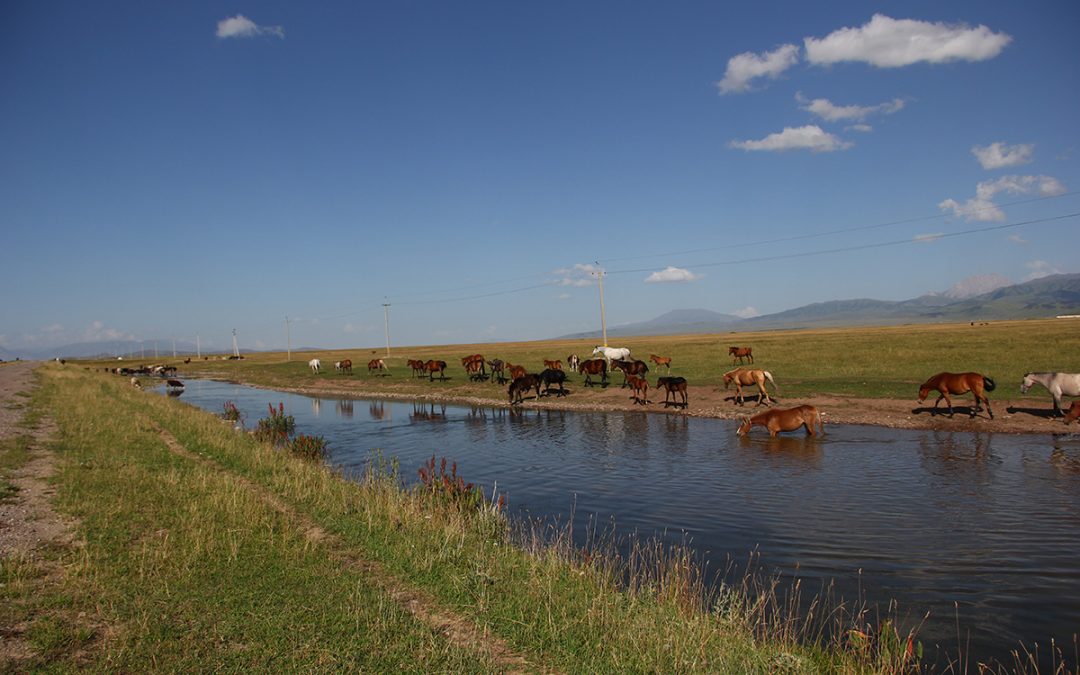by Robin Ewing
Aug 9, 2013
We limped up to Kazakhstan in a billow of black smoke. The compression on the newly repaired engine was gone (I’m guessing the stoney mechanics duct taped it all back together), cutting off power to the engine, but if we continuously restarted while driving we could get some speed for a few minutes. Uphill was 5 mph and acceleration left a dense cloud of black smoke in our wake. It took hours, but we had to get out of Kyrgyzstan. Almaty felt like the promised land.
The remote Karkura border crossing is just a few buildings and a fence dropped in the middle of nowhere. Expansive mountains encircle the green valley crossed by clear rushing streams where groups of horses run wild in the summer (Joanne Renwick says they all get eaten in the winter). A lone horseman gallops by in the distance. There is nothing for miles on either side. It is gorgeous.
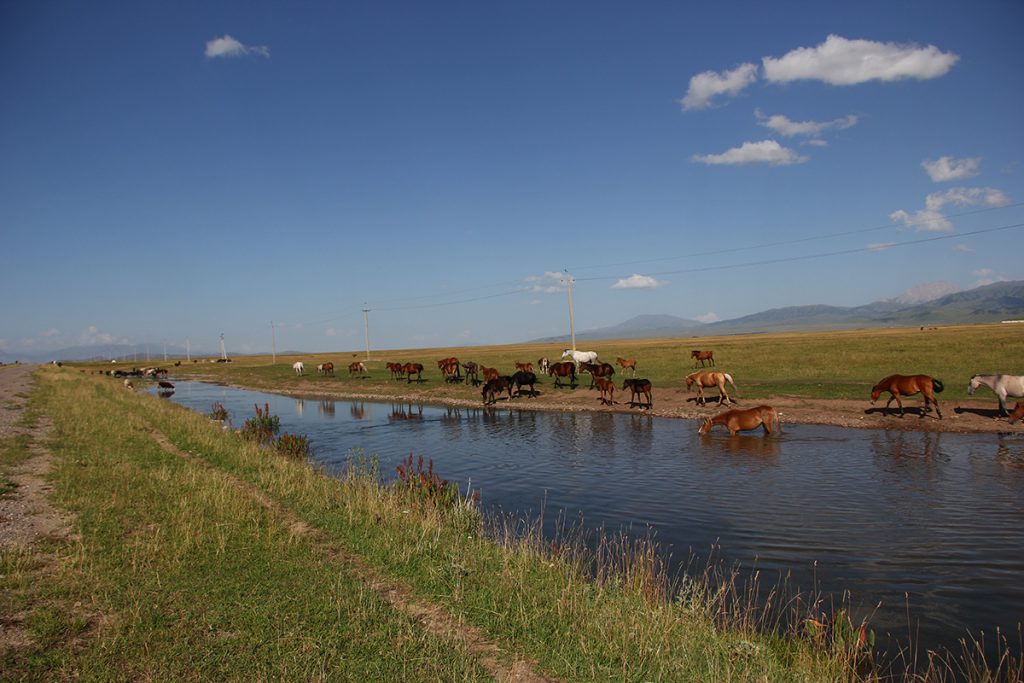
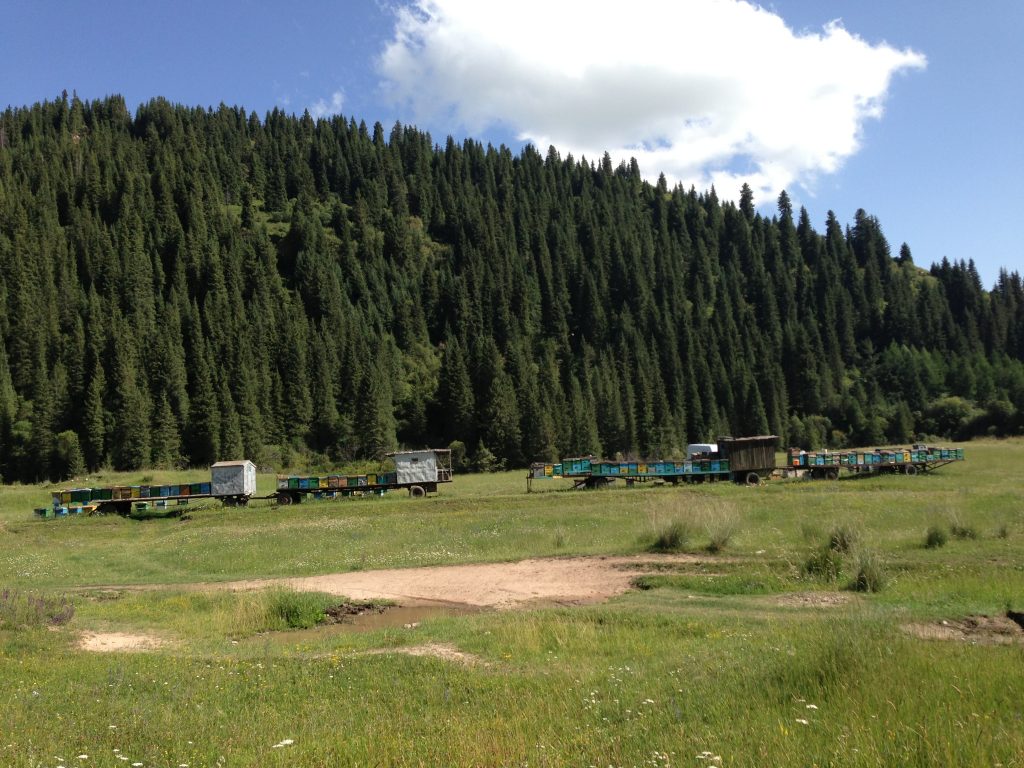
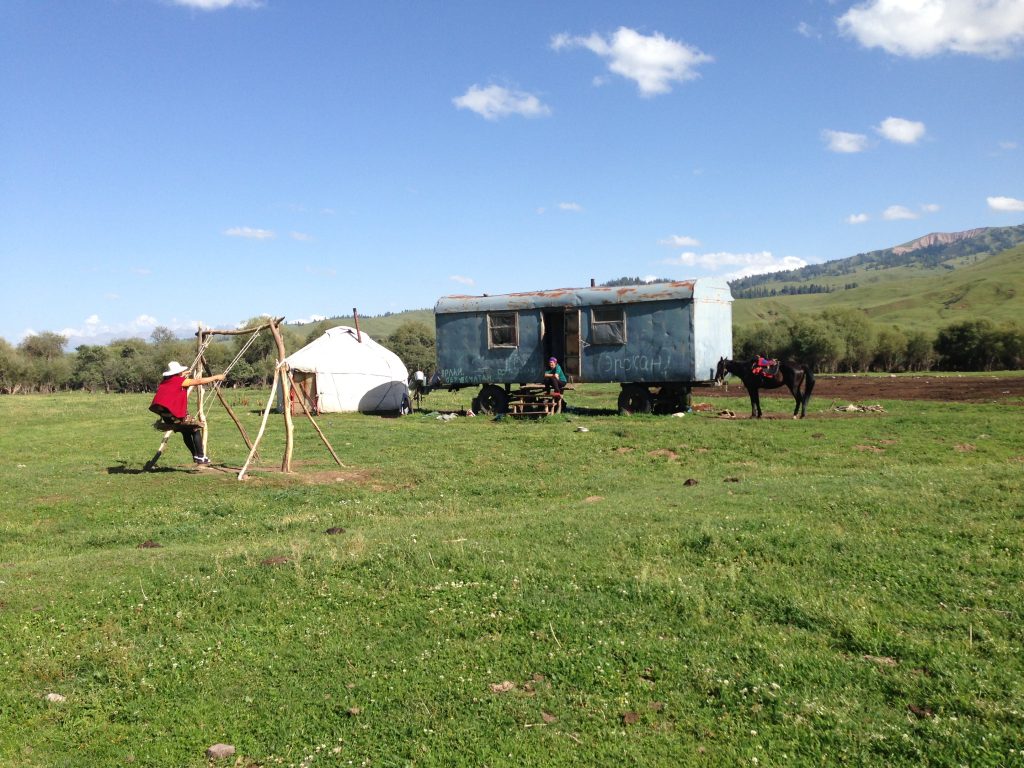
Leaving Kyrgyzstan was easy. We idled past a few cows and came to Kazakhstan. Our single entry visas were stamped by two young men in a shack, and we were officially in country. Then a tall man in a black T-shirt and sunglasses appeared, walking slowly around our van and eyeing it up. He pointed at the license plate and said, “Problem.”
Opel has German export plates. Dean found her on a German auto site but to get permanent registration in Germany, we needed a German address. Export plates, meaning a temporary registration for cars leaving the country, were the answer as they could be registered without a German address in a few hours. Ours were good for two months, the expiry date printed on the plates in bright red like a stoplight.
So far, there had been no problems with the export plates, but I’d heard from a man last year that his team was denied entry at the Ukraine border. His Dad had to fly to Germany to get permanent registration. He said getting into Russia was also a problem. No one had said anything about Kazakhstan.
We waited for the decision. No, our car could not enter, the tall man said. This border crossing didn’t have the correct form for export plates. We would have to drive back through Kyrgyzstan to the other crossing at Cordai near Bishkek, about nine hours in a car that runs, through the dark on jarring roads. They would accept our plates there, he said.
But we just wanted to pass through his lovely country for a few days on our way to help poor children in Mongolia. It was a humanitarian mission. Our registration was legal, we argued. Then I offered deposit money. He wasn’t interested. After an hour of pleading he was fed up. “Impossible,” he said sternly, and walked off. We weren’t getting in. We had to go back to Kyrgyzstan.
This suddenly became an even bigger problem. Not only was the Kyrgyzstan border now closed, the guards from both sides wandering over to the dormitory shower with towels flung over their shoulders, but we had only one Kazakhstan entry on our visa and it had been used. We wouldn’t be able to enter the country again without applying for a new visa at an embassy, even if Opel could somehow miraculously make it to Bishkek. I wondered what would happen if I abandoned her in a parking lot.
I found the tall man, who had distanced himself from the problem, and showed him my single entry visa. I cried. He sighed. Then he told me to park the car in the impound lot behind his office where we could sleep for the night. It was dusk, the mountains purple in the distance, and getting cold fast. I wondered if wolves could get into the parking lot. I started shivering. He sighed again and led Yoav and I into a small office with two desks, a few chairs and lots of posters of Kazakhstan.
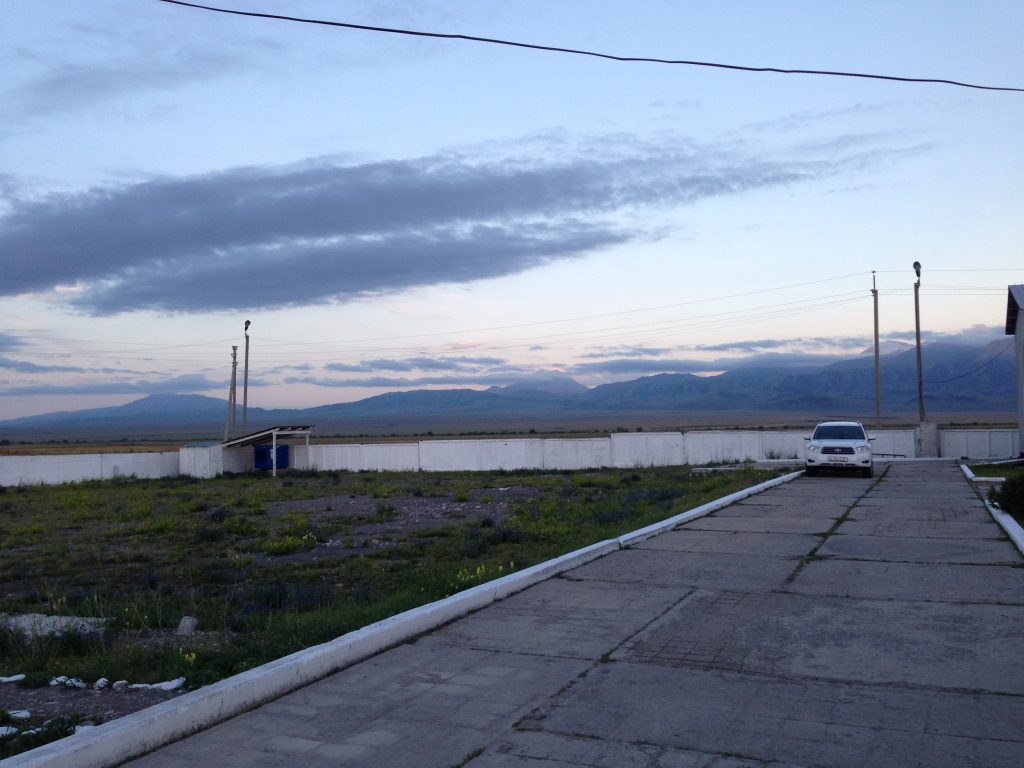
I cried a little more for good measure. Hours passed. I got bored and went outside to chat with the smiley border guards, who wrote their ages in the dust on the van and invited me to their hut for dinner and a drink. I declined. The stars came out, bright in the lightless mountain valley. I heard Yoav chatting with the men inside. Two more hours later, he appeared and told me to get the car documents. They were going to let us in. He’d talked his way into loophole (though I suspect they were just looking for any reason to get rid of us).
An hour of paperwork later, we were allowed to leave. Elated, we jumped into the van, the tall man opening the gate to let us out. The car didn’t start. I imagined the tall man ripping my car registration from my shivering hands as the wolves clawed at the fence. Yoav turned the key again. No go. And again. The third time did the trick and we crawled out, hobbling off down the single lane road into the dark, black smoke trailing behind us.
At 3am, we pulled up at the front door of Joanne and Chris Renwick (Louise’s parents who have been living in Almaty for more than five years), who for the next 24 hours, gave us food, beds, showers, a washing machine and dryer, a tour of surprisingly modern Almaty and overall just great company.
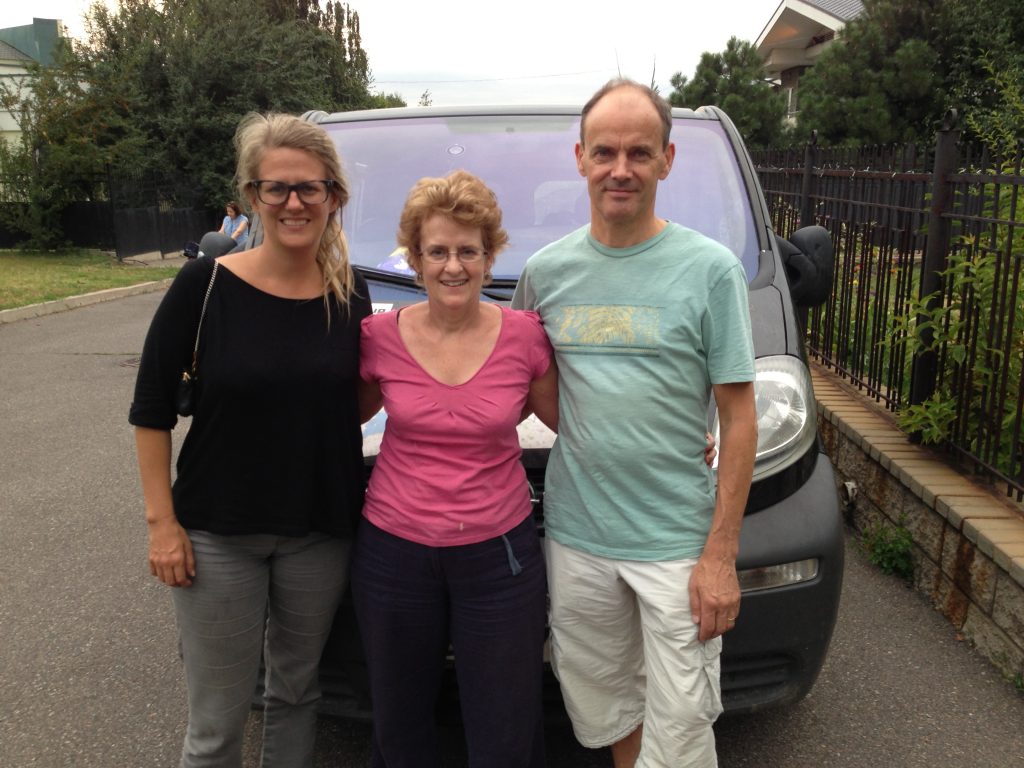
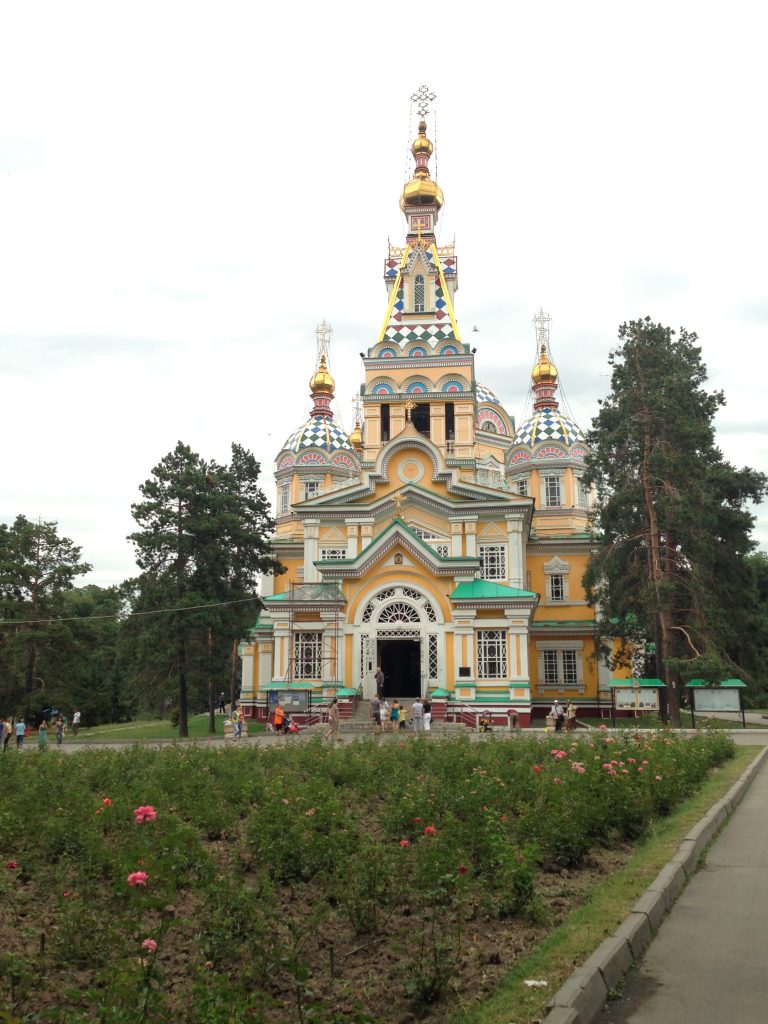
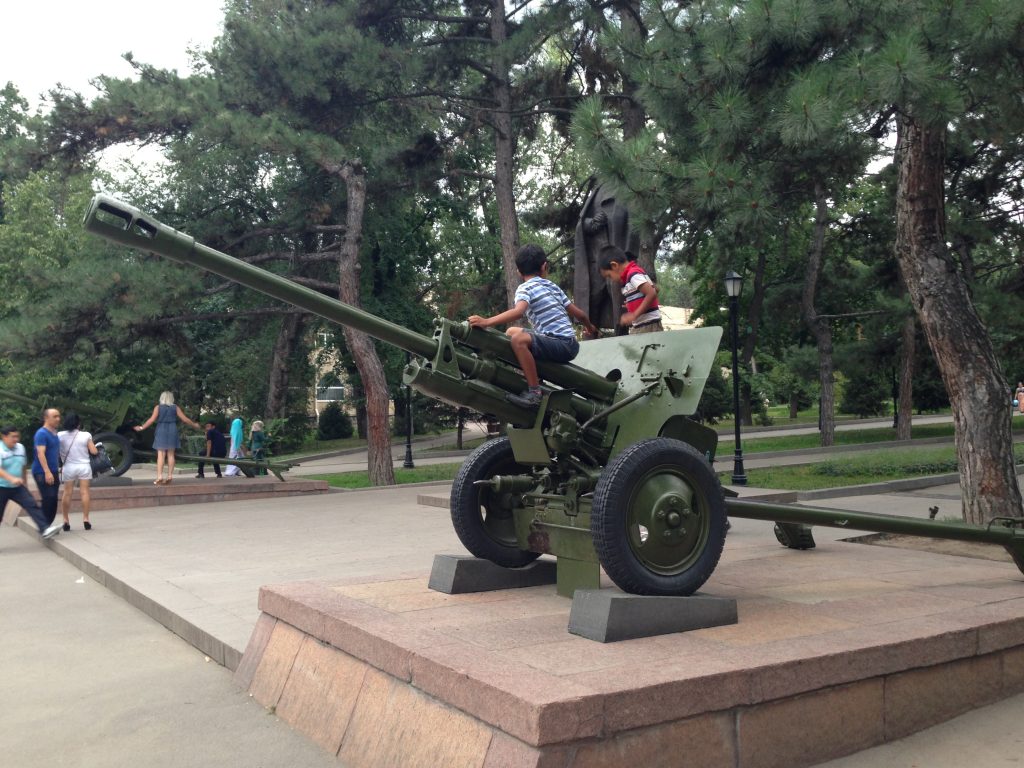
The Renwicks also took us to a Renault service center. A man used Google translate to print out a message that a master would look at the vehicle and let us know. After four hours of sitting on bright yellow couches in the sunny showroom, the car was ready. They fixed it for free, all the mechanics signing the road map sticker on the hood. “Present. Mongolia,” the man said smiling and handed me the keys.
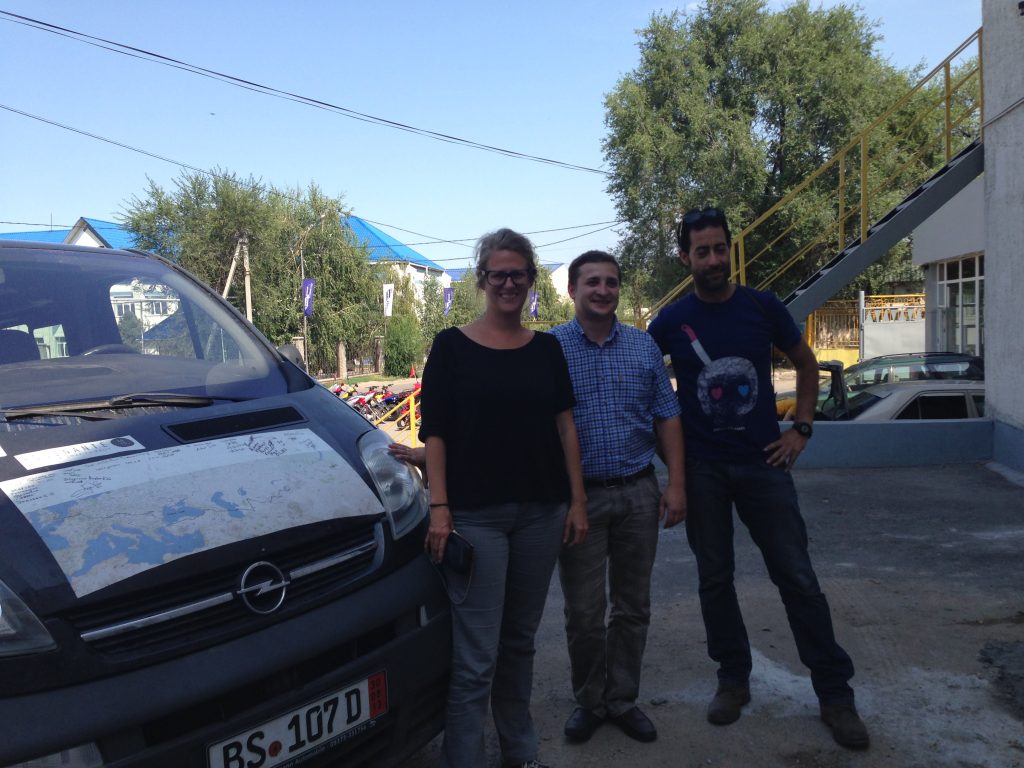
It drove better than when I bought it.
Back at the Renwick’s house, I ripped the license plates off and taped them back on, covering up the red expiration date on the side with dark blue duct tape. If Russia asked, I would say they got ripped off during the river tow. At 5:30am, we left the Renwick’s cozy house, headed in the rain for the Russian border 1,300 km/800 miles away. We hoped to drive all night and meet up with the Bandits in Barnaul.
Maybe we’ll make it after all.
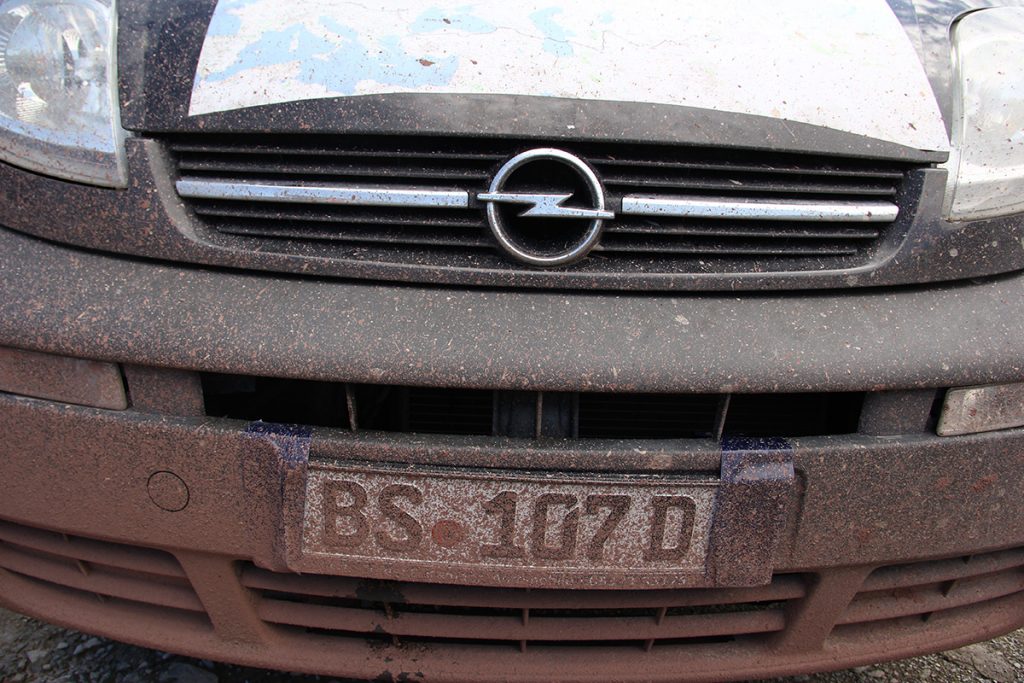
I used tape to cover up the expiration date on our export plates. Then I drove through a bunch of mud for authenticity.

